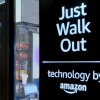
4 reasons consumer-apps don’t measure up for retail sales
Retailers have a problem. Almost all brands have been told to develop an app, but most Americans that download apps never use them more than once, meaning a huge waste of time and money for some companies. While some retailers’ apps are more than a glorified website (think Lowe’s which remembers your buying history for when you can’t remember later what type of screw is needed for your grill or what type of bulb your overhead fan takes), most are little more than a mobile-friendly list of things to buy, which doesn’t enhance a shoppers’ experience in any way.
There are a few answers to this dilemma – somehow change consumer behavior overnight, make your app actually relevant and useful beyond just a glorified website, or consider alternative mobile marketing efforts.
![]()
Alex Romanov is the CEO of iSIGN Media, a multiplatform advertising solutions company that utilizes Bluetooth, Mobile, Wi-Fi and Location-Aware technologies to deliver rich media, permission-based messages to engage consumers more deeply and cost-effectively.
Romanov notes that “Apps are a hot item in retail technology, but is all the hoopla just hype? From the retailer’s perspective, the answer is probably yes. The average US smartphone owner has more than 30 apps installed, but uses only about six apps regularly each month. That’s a problem for retailers who have spent tens of thousands of dollars to develop apps to drive revenue.”
He asserts that the alternative is proximity marketing. In his own words below, he outlines advantages to proximity marketing over an app-based approach:
1. Proximity marketing finds customers
Proximity marketing finds customers instead of asking them to find you. With an app-based marketing strategy, you’re asking customers to go through the hassle of finding and downloading your app. Proximity marketing detects customer devices when they enter your store and sends an opt-in message asking if the user would like to view a coupon or offer. It’s a spontaneous rather than premeditated interaction.
2. Generate a better response rate
Proximity marketing uses point-of-sale offers to generate a monster response rate. An IBM study found that up to 72% of customers will act on an offer if they are within sight of the point of purchase. That’s a staggeringly high response rate, but it makes sense if you think about it. People who come into a store voluntarily likely have purchasing a product in mind, and if you give them a money-saving offer for something they’re already inclined to do, they have every reason to act on it.
3. Protecting consumer privacy
Proximity marketing uses mature technologies and protects consumer privacy. Proximity marketing doesn’t collect vital consumer data like names and phone numbers – the technology accesses the device signature instead. Consumers can choose to view the message or opt out, making a proximity marketing approach less intrusive than marketing strategies that collect identifying information, such as app downloads. And since it uses mature technologies that virtually everyone uses, consumers feel more comfortable receiving proximity marketing messages.
4. Data, data, data
Proximity marketing generates incredibly valuable data. While it’s true that proximity marketing protects consumer data, it also generates amazing insights for merchants, including data on response rates, offer effectiveness, consumer foot traffic patterns and much more. Think of it as a heat map in your brick-and-mortar store; it functions in the physical store much as ecommerce tracking data and analytics help online retailers assess consumer behavior and create more effective offers.
The takeaway
“Rather than requiring development of an expensive, custom-built retail app,” Romanov adds, “a proximity marketing strategy leverages the technology already built into the device: Bluetooth® and Wi-Fi, making it simple to deploy. Contrast that with apps, which can cost tens of thousands of dollars without delivering much measurable value.”
Romanov concludes, “So when it comes to proximity marketing vs. apps, savvy retailers should look beyond the hype and think about what they want to accomplish with their digital marketing strategy. A push marketing approach that leverages customer proximity can be incredibly effective, and it’s a proactive strategy that can drive sales higher for a much lower investment.”
Marti Trewe reports on business and technology news, chasing his passion for helping entrepreneurs and small businesses to stay well informed in the fast paced 140-character world. Marti rarely sleeps and thrives on reader news tips, especially about startups and big moves in leadership.





































